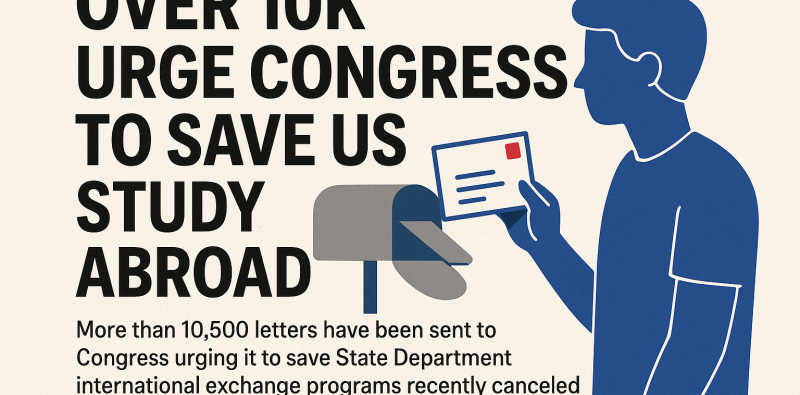
In a powerful display of advocacy, over 10,500 letters have flooded Congress, urging lawmakers to reverse the abrupt cancellation of critical State Department international exchange programs by the current administration. These programs, vital to U.S. global engagement, face an unprecedented threat due to $100 million in funding cuts, sparking widespread concern about their survival and the broader implications for American diplomacy.
A Sector in Crisis
The cuts, affecting 22 State Department programs, were announced as part of a fiscal reprioritization led by the Office of Management and Budget (OMB). The decision has drawn sharp criticism from stakeholders who argue it undermines congressional authority, as the funds were previously approved for fiscal year 2025. Critics, including education and exchange organizations, have labeled the move as potentially unconstitutional, warning that it sets a dangerous precedent for future funding decisions.
Two major campaigns, spearheaded by the Alliance for International Exchange and NAFSA: Association of International Educators, have mobilized thousands to petition Congress. The Alliance alone generated 8,500 letters in just four days, reflecting the urgency felt across the sector. Mark Overmann, executive director of the Alliance, emphasized the stakes, stating that allowing these cuts could “effectively dismantle international exchange programs” by granting the OMB unchecked power to override congressional appropriations.
Impacted Programs and Their Significance
Among the programs targeted are initiatives with deep diplomatic and educational value. The Kennedy-Lugar Youth Exchange and Study (YES) Program, established post-9/11, fosters cultural understanding by bringing youth from predominantly Muslim countries to the U.S. Its cancellation raises concerns about diminished goodwill and soft power in critical regions. Similarly, the English Access Program, which has empowered 200,000 students and 7,500 teachers globally with English language skills since 2004, faces elimination. The Mandela Washington Fellowship, a cornerstone of U.S.-Africa relations, is also at risk, threatening to disrupt leadership development for nearly 7,200 young African leaders.
These programs are not just educational tools; they are pillars of U.S. foreign policy, promoting cultural exchange, mutual understanding, and global cooperation. Stakeholders warn that their loss could lead to layoffs, furloughs, and even the closure of organizations dependent on these grants, with long-term damage to America’s international influence.
Questioning the Rationale
The State Department defends the cuts as a necessary response to the current fiscal environment, aligning with Secretary of State Marco Rubio’s directive that all expenditures must enhance America’s safety, strength, or prosperity. However, critics argue that these programs directly contribute to those goals by building global networks and fostering alliances. The lack of transparency in the decision-making process—particularly the failure to notify Bureau of Educational and Cultural Affairs (ECA) staff before regional bureaus—has fueled distrust and accusations of mismanagement.
A Call to Action
The rapid response from Congress, described as more robust than earlier efforts this year, signals hope for advocates. The campaigns are urging lawmakers to act swiftly to restore funding and protect these programs, emphasizing their role in national security and global competitiveness. As the debate continues, the outcome will test the balance of power between the administration and Congress, with far-reaching consequences for U.S. international education and diplomacy.
The sector’s message is clear: these programs are not expendable. They are investments in a connected, secure, and prosperous future. With thousands rallying to their defense, the fight to save U.S. study abroad programs is far from over.
